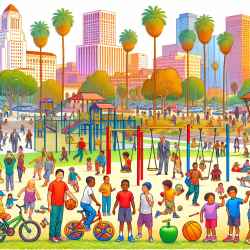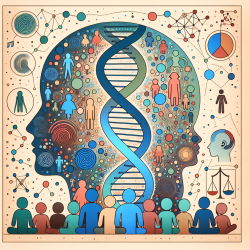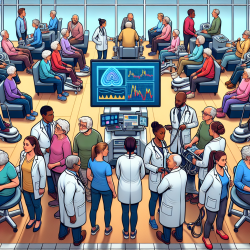Introduction
The COVID-19 pandemic has highlighted vulnerabilities in our food systems, challenging practitioners to rethink resilience and security paradigms. As a Special Education Director, I understand the importance of adapting to new challenges, much like the food industry must do now. This blog explores insights from the research article "Perspectives from CO+RE: How COVID-19 changed our food systems and food security paradigms" and how practitioners can implement these findings to enhance their skills and strategies.
Understanding the Impact
The pandemic has shown that our food systems are highly interconnected and multidisciplinary. The sudden disruptions revealed the need for resilient systems capable of withstanding unforeseen disturbances. Practitioners can learn from this by adopting a more holistic approach to problem-solving, considering the entire ecosystem rather than isolated components.
Key Takeaways for Practitioners
- Embrace Resilience: Focus on building systems that can adapt and thrive amid disruptions. This involves planning for redundancies and diversifying supply sources.
- Leverage Technology: Utilize digital tools and innovations such as IoT and blockchain to enhance transparency, traceability, and efficiency in supply chains.
- Promote Local Sourcing: Encourage local production and short supply chains to reduce dependency on global networks and enhance community resilience.
- Foster Collaboration: Work with stakeholders across sectors to create coordinated responses to crises, ensuring food security for all.
Encouraging Further Research
Practitioners should not only implement current findings but also engage in continuous research to stay ahead of emerging challenges. Exploring new models of food systems that integrate sustainability and resilience is crucial. Attending conferences, participating in webinars, and networking with peers can provide valuable insights and foster innovation.
Conclusion
The lessons from COVID-19 serve as a wake-up call for the food industry and beyond. By embracing resilience, leveraging technology, promoting local sourcing, and fostering collaboration, practitioners can build systems capable of withstanding future shocks. To delve deeper into these insights, I encourage you to explore the original research paper: Perspectives from CO+RE: How COVID-19 changed our food systems and food security paradigms.










